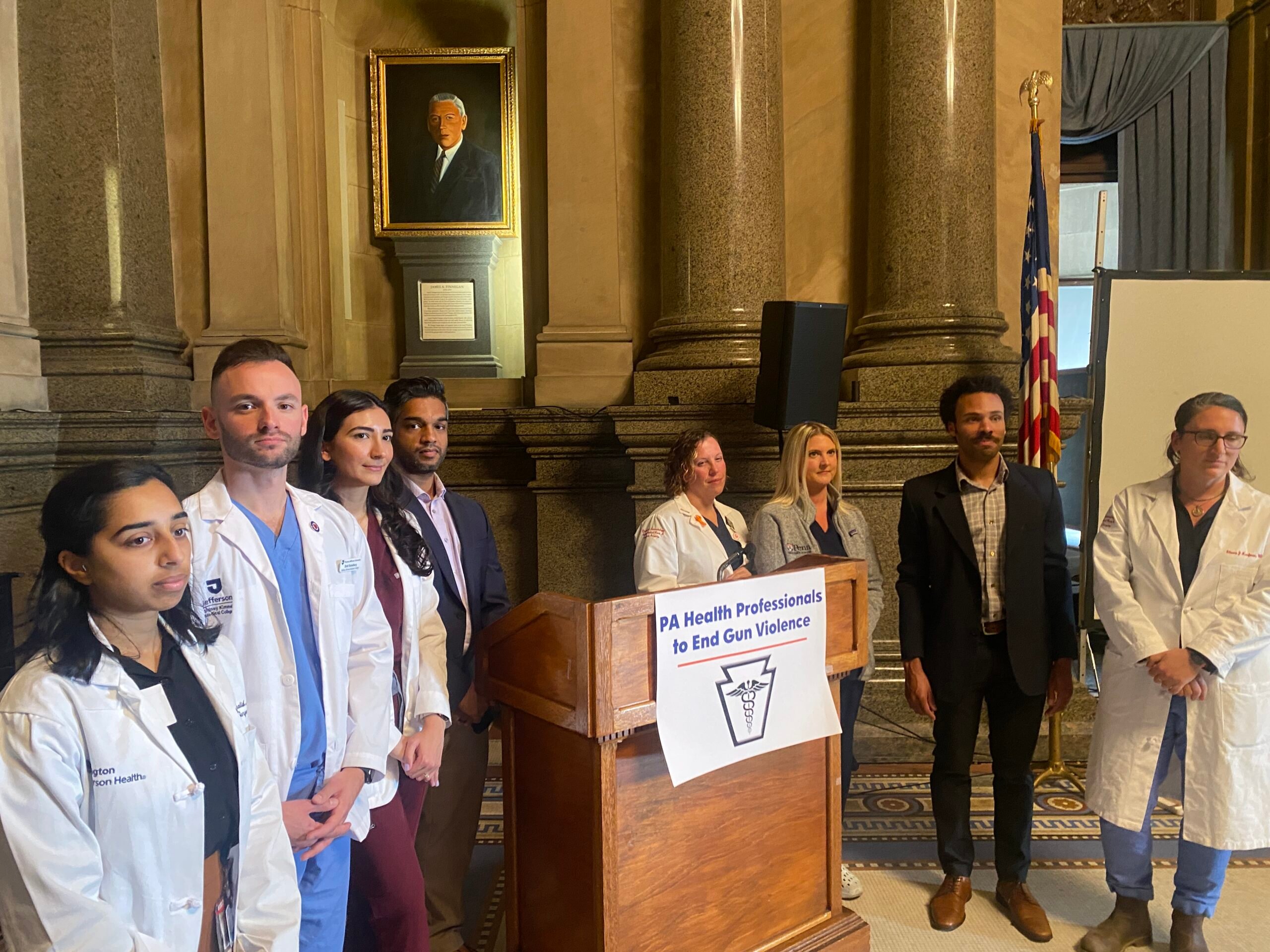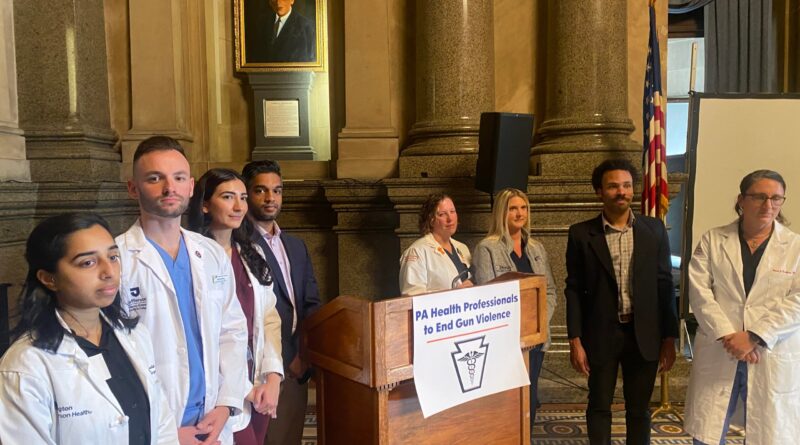Pennsylvania Health Care Workers Unite to Call for Stronger Gun Policies
A new group of health care professionals in Pennsylvania is preparing to pressure lawmakers and other officials to reduce shootings across the state, even as gun violence in Philadelphia and elsewhere has dropped significantly this year.
Eight leaders from Pennsylvania Health Professionals to End Gun Violence took questions on October 8, at a press conference inside Philadelphia City Hall. They said that their new organization has received the support of several hundred of their colleagues across the country who are not happy with the recent trend of violence, as suicides, murders and shootings it killed 1,800 people and caused two fatal accidents last year.
They plan to advocate for stricter gun laws, because, they said, the root of the problem is unrestricted access to guns. The laws they support include safe storage of firearms at home, reporting of lost and stolen firearms, closing loopholes in background check laws, and the passage of extreme gun safety regulations. taking guns from domestic abusers.
“While great programs are working to end violence in our city, it’s still easier for our young adults to get a gun than it is for them to have the tools to stop them,” said Sunny Jackson. faculty member, nurse, and injury prevention coordinator at Penn Medicine Trauma Center.
Dr. Elinore Kaufman, a trauma surgeon at the University of Pennsylvania, said solving the problem requires getting outside the health care system. “We want to go beyond our day-to-day, life-saving work in the clinic, in the hospital, to advocate for preventive policy changes that can fix the system that causes this gun violence in the first place,” he said. said.

Mensah M. Dean for The Trace
Currently, 62 bills related to gun safety have been introduced in the Pennsylvania House of Representatives with only five approved and sent to the state Senate, according to CeaseFirePA, a nationwide gun safety organization.
They include bills that would ban ghost gun sections, require conflict resolution to be taught in schools, create safer community subsidies, improve background checks for gun purchases, and mandates to protect against extreme, known violence. are also red flag rules.
None of those bills are likely to be approved by the Senate before the session ends in January, said Adam Garber, executive director of CeaseFirePA. “The Pennsylvania Senate can move quickly if it wants to. This is not a problem of time, it’s a problem of political will,” he said. “I think, unfortunately, we’re going to have to lose a lot of lives in Pennsylvania first.” it can be legal.”
The new federal program is consistent with that of American Surgeon General Dr. Vivek Murthy, who in June declared a public health crisis about guns. He noted that in 2022, 48,204 people died from gun-related injuries — more than 8,000 more than in 2019 and 16,000 more than in 2010.
Dr. Vivek Ashok, a pediatrician and injury prevention researcher at the Children’s Hospital of Philadelphia, said legal action could save lives — as well as tax dollars. Ashok, a member of the coalition, said: “Hospitalization of a gunshot survivor can cost only $35,000. “In fact, in 2020 alone, the total cost of gun-related injuries and deaths in the United States is estimated to be $493.2 billion,” he said. “If we are committed to providing economic stability to our vulnerable patients and reducing health care costs, we need to address gun violence.”
While admitting that the number of shooting victims in Philadelphia is down nearly 40 percent compared to the same period last year, Kaufman said many people still feel unsafe, because reasonable. The city is on track to have nearly 1,000 shooting victims by the end of the year, he said. There were 10 homicides in September — the lowest number since 2015. But that pales in comparison to Boston, which had just 13 homicides all year, Kaufman said.
“The city doesn’t feel safer than any other because people can still be shot, they’re being shot at their doors, their porches, their cars, walking through the park or walking out of the grocery store. corner,” he said. said.
Jackson, who is a nurse, says that it is often her job to tell families that her loved one has died, adding that she felt the same pain when her nephew was killed by gunfire. We have reached a critical point in our city where everyone has been affected by gun violence, or knows someone who has been.
Coalition member Brett Beilberg, a third-year medical student at Thomas Jefferson University and founder of Students Against the Gun Violence Epidemic, noted that medical professionals are not immune to the gun violence that keeps them so busy. He recalled one morning last year when a trip to the hospital was hit by gunfire that led him to hide in the area of 15th and Market Streets, near City Hall.
“Our respiratory doctors, our chaplains, our cafeteria workers and custodians, have told us about their siblings, their children, their cousins that they too have lost to gun violence in Philadelphia, and the silent grief they struggle to come to. work at the hospital every day to witness the cycle of violence as it continues,” Beilberg said. “Enough. It has to end. ”

The Trace Report in Philadelphia is part of the Every Voice, Every Vote initiative and is also supported by the Comcast NBCUniversal Foundation, The Lenfest Institute for Journalism, the Neubauer Family Foundation, and the William Penn Foundation. You can read more about The Trace’s Philadelphia sponsors here, and read our editorial independence policy here.
#Pennsylvania #Health #Care #Workers #Unite #Call #Stronger #Gun #Policies
